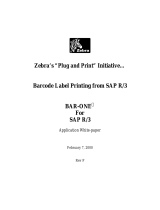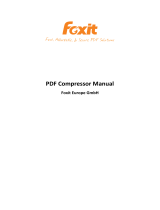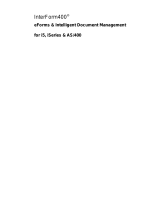
Check that font mapping has not been altered for the printer .................................................................................... 23
Form did not merge as expected...................................................................................................................................23
Remove unnecessary characters from the beginning of the form............................................................................... 24
Page is plain text..................................................................................................................................................................24
Make sure to review the activation conditions in Forms Composer............................................................................ 24
Make sure the Forms merge function in the DLE is not deactivated by Forms Manager .................................... 24
Unable to fax or e-mail merged output.......................................................................................................................24
Check the settings for both Lexmark Forms Composer and the printer.................................................................... 24
Characters appear as boxes in PDFs viewed with Acrobat Reader...................................................................24
Use a different program to view PDFs .................................................................................................................................... 24
All forms are not listed.......................................................................................................................................................24
Data filters are not working.............................................................................................................................................25
Flash memory is full............................................................................................................................................................25
Is there any more space on the flash memory card? ......................................................................................................... 25
Is the flash memory fragmented?............................................................................................................................................. 25
Bar codes do not print as expected..............................................................................................................................25
Make sure the Option Card is compatible with the printer on which it is installed ...............................................25
Make sure that the Option Card is installed.......................................................................................................................... 25
When using a PCL 5 emulation printer driver, make sure that the escape sequence used to generate
the bar code is properly constructed................................................................................................................................. 25
Bar code will not generate when using certain PCL emulation printer drivers............................................25
Some printer drivers allow enhanced features to be disabled ...................................................................................... 26
Unexpected results after printing a bar code...........................................................................................................26
Make sure the PCL 5 emulation escape sequences are complete ................................................................................ 26
Make sure all parameters needed are fully specified......................................................................................................... 26
Printed bar code is unreadable......................................................................................................................................26
Make sure Print Quality settings are not too dark or too light....................................................................................... 26
Check the paper .............................................................................................................................................................................. 26
Notices................................................................................................27
Edition notice........................................................................................................................................................................27
European EC directives conformity statement for radio products....................................................................28
Index...................................................................................................31
Contents
3






















